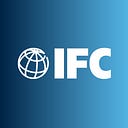Canada’s Financial Support Key to Driving IFC Gender-Related Projects
By Karin Finkelston
Many countries have made strides in narrowing the economic gaps between men and women. Yet, as the recent World Economic Forum gender report shows, much more needs to be done to bridge the vast gap in economic opportunities.
One of the ways to close the gender gaps is to create partnerships that can transform ideas into action. In this effort, the Government of Canada continues to be one of IFC’s most important financial contributors, especially for programs related to gender.
Over the past several years, the Canadian department Global Affairs Canada provided financial support to a range of gender-related IFC programs, including helping advance insurance for women and promote employer-backed childcare for employees.
In the insurance sector, with Canada’s backing, we helped produce a report, Mainstreaming Gender and Targeting Women in Inclusive Insurance, which led to a better understanding of the financial risks women face and what insurance companies can do to address them. We also worked with several insurers, including AXA Mansard in Nigeria, to design innovative insurance products to exclusively address the needs of women.
Another key program is IFC’s Tackling Childcare partnership, which culminated in the launch of a key report in 2017, discussing how companies that offer affordable childcare options can reap business benefits.
That is why I’m excited today that we signed an agreement with Global Affairs Canada to launch the Advancing Women in the Workplace program. The program seeks to boost women’s employment in the private sector by building on IFC’s research and evidence on the business case for women’s employment.
Under the program, investments will be targeted in four priority areas, mainly in countries eligible for International Development Association lending and in Fragile and Conflict-Affected States.
The first component is advancing women’s employment in Manufacturing, Agribusiness, and Services, where IFC will help diagnose gender diversity within companies, potentially through the Economic Dividends for Gender Equality (EDGE) certification, which sets benchmarks for gender equality in workplaces.
The second focus will be to address the need for childcare. The project will tackle this through four components, by assessing a firm’s childcare needs; documenting the business case; identifying investment opportunities in the care sector; and by exploring ways to enhance childcare policy and regulatory framework in one or two countries.
The third component will tackle gender-based violence, another barrier for women’s advancement. A recent World Bank Group report estimates some countries are losing up to 3.7 percent of GDP because of gender-based violence. For businesses, that violence translates into reduced productivity, increased absenteeism, and increased costs linked to employee turnover.
The fourth priority will be to expand IFC’s work in the garment industry, which formally employs more than 60 million workers — more than 80 percent of them women — in developing countries. Poor working conditions, including long hours, low wages, and abusive practices impede women’s participation. IFC, using its experience from BetterWork and other programs, will expand its work in Bangladesh and replicate it in other countries.
Donor funding from countries like Canada play a key role in our efforts to close the economic gaps between men and women. We are grateful for Canada’s support and look forward to continued collaboration for years to come.
Karin Finkelston is the Vice President of Partnerships, Communication, and Outreach at the International Finance Corporation
